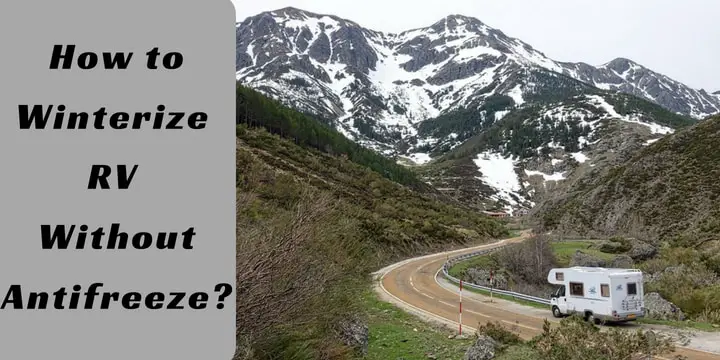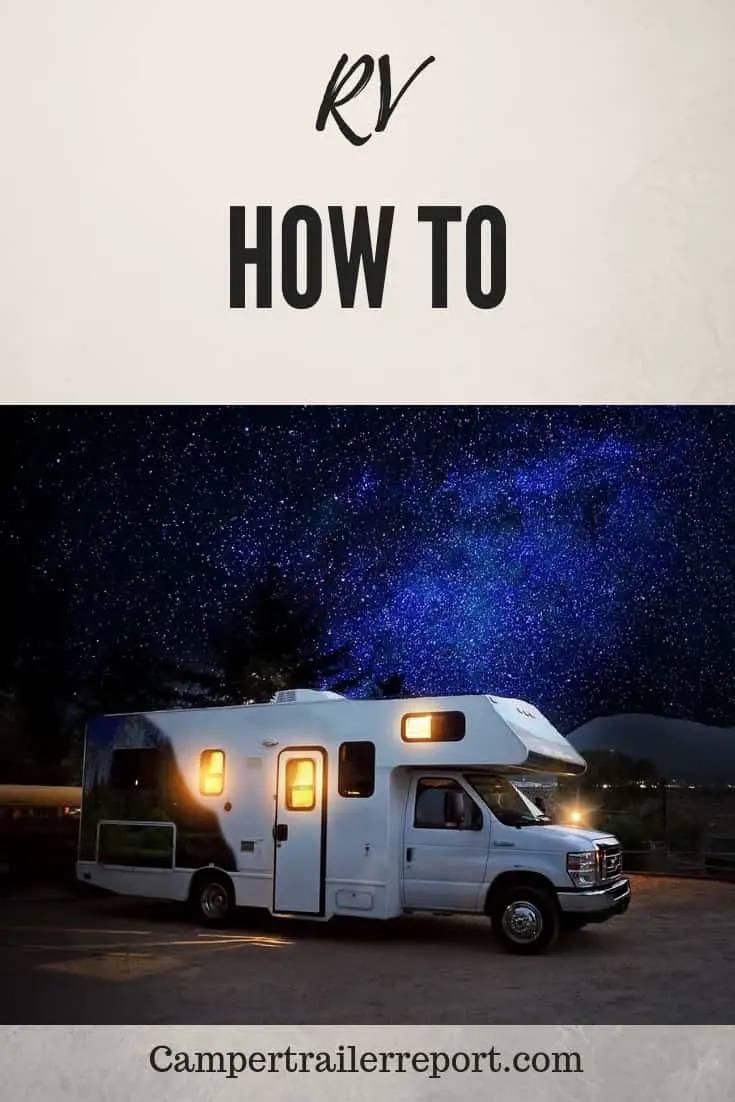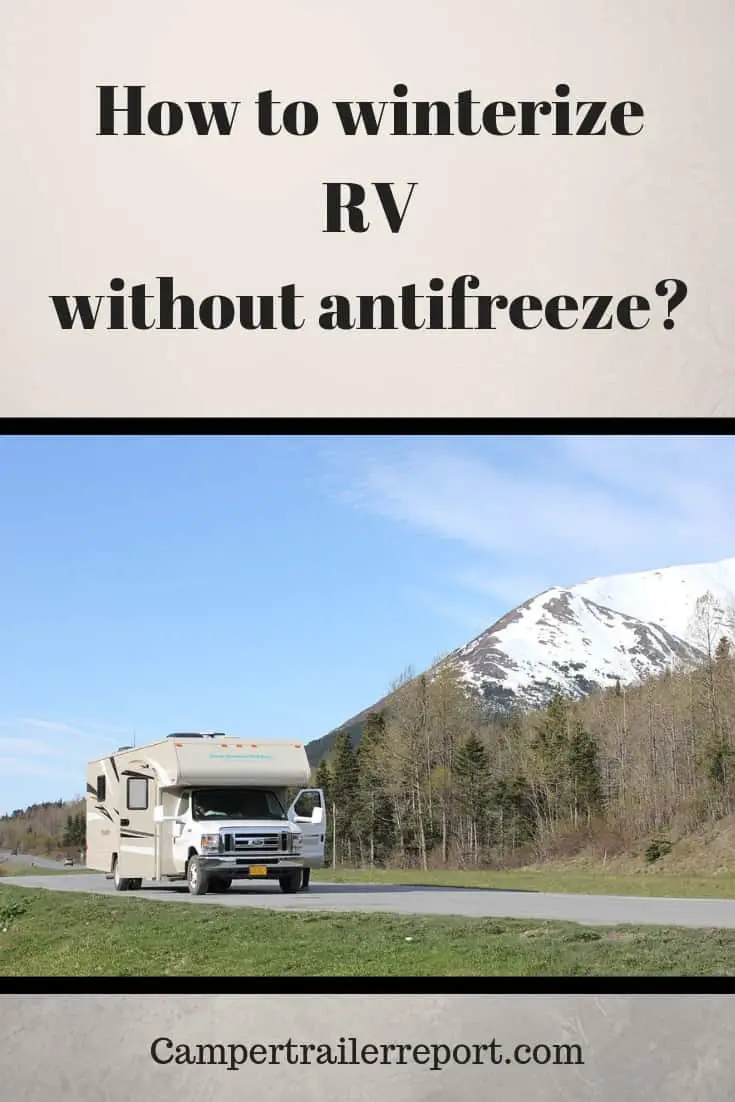How to winterize RV without antifreeze?
Often when the camping season ends, it is usually disappointing. But it can get even more disappointing when you do not protect your RV through the harsh winter period. Obviously, during this time you will leave your RV dormant. It is common knowledge that your tanks and pipes may freeze and of course, burst if left water-filled.
While some people prefer to winterize their RV on their own, there are professionals who can do the job perfectly. If you want to winterize your RV, there are procedures often employed including the use of an anti-freeze. Consequently, here is the procedure on how to winterize RV without antifreeze.
Draining the Plumbing System
This is a crucial part that is necessary for the purpose of getting your RV ready for the harsh winter season. Even a little amount of water that is left in the faucets, pipes, and pumps or valves can freeze, expand, and then split apart. In case that happens, repairs can be expensive because most of the plumbing system is buried inside the RV’s walls and cabinets.
>> You may also like: How to Winterize Camper Trailer <<
You can winterize RV without antifreeze by simply blowing out the plumbing system with air that is compressed. Employing the use of compressed air for blowing out the system is a method that is easier. There are two things that are required here which are an air compressor and a “blow out plug”. The blow-out plug can be purchased at the suppliers of most RV parts. Here is a step-by-step guide on using this method.
1. Allow the draining of all water from the tank holding freshwater. For you to accomplish that, you will be required to open that thing referred to as a petcock. It is important that you are not tempted to drain your water heater at this time.
2. Drain both the black and of course the grey holding tanks. For the RV’s that have not incorporated the use of a built-in system, you should employ the use of a product or wand
that is designed for cleaning the tanks. The contents of the tanks should be deposited in the local dump station.
3. Consult with the owner’s manual in regards to the washing machine, refrigerator, dishwasher, and icemaker if so equipped. That is for instructions for winterizing.
4. Open all cold and hot water faucets. That includes those for the toilet, shower, and sinks. By trying to flush your toilet a couple of times, you will be able to make sure that all
the water is gone.
5. Attach the compressed air adapter or the “blowout plug” to the water lines of the RV. The product can be purchased from most hardware stores.
6. To avoid damaging the water lines, the air compressor should be adjusted to less than30 psi or a maximum of 50pounds per square inch.
7. The air compressor should then be connected to the blowout plug. Turn the compressor on and let it function until all the water has been blown from the drain valves and faucets.
Video Overview: How To Winterize RV Travel Trailer Water System
Once done, switch off the air compressor and disconnect from the water inlet the blowout plug. Replace the caps on all the water inlets and close the faucets and reclose the petcock.
In conclusion, apart from employing the use of the method shown above on how to winterize RV without antifreeze, other finer details are also as important. You should remove all
your laundry, food, and valuable item. For example, if you leave an orange soda of two-liter over the fridge, there are high chances that it will explode. And of course, mice and ants like
food and are destructive. It is also important that you cover all of the vents and holes. Birds, bugs, or rodents can turn your RV into their home if you do not cover the holes and vents.
Related Post: 45 RV Accessory Must-Haves for Your Travel Trailer
Related Questions:
Is it better to winterize a camper with air or antifreeze?
On the issue of winterizing a camper, one can decide to use compressed air or antifreeze to clear the water system of water. Using an air compressor to winterize your RV does make the job less messy since you will unlikely have any spillage accidents like when using antifreeze.
By using air one can also benefit from having the camper ready for use quicker. Having used antifreeze one needs to keep flushing the lines to fully clear them of residue antifreeze liquid. Even then water will still taste and have a faint odor.
In the case of using antifreeze one is better able to protect the lines from freezing as it reaches all hard to reach areas where water may settle and blowing air cant actually be effective.
Antifreeze also helps avoid damaging valves and piping that may be caused by highly compressed air. After considering both methods most manufacturers and experienced campers recommend using antifreeze.
How cold can it get before I have to winterize my camper?
Most experts recommend winterizing your RV ahead of the first frost, but since every region has a different climate one should winterize depending on local weather conditions.
The bare minimum would be to look out for when the weather forecast predicts temperatures falling to about 32 degrees Fahrenheit for about 24 hours continuously. This is enough to damage your plumbing hence the need to winterize.
What happens if you don’t winterize your RV?
When living in colder climates water tends to freeze and expand, this is highly damaging in enclosed spaces like the plumbing network in an RV. The piping usually freezes and bursts open leaving you with a costly bill in repairs.
Video Overview: Don’t Damage Your RV Water Lines! – RV Winterization Made SIMPLE
What’s the easiest way to winterize a camper?
The easiest way involves draining all water tanks, from fresh, gray, black to hot water tanks. This is followed by using a compressor to blow out residual water. One then pours antifreeze into the fresh water tank and turning on the water pump to distribute it throughout all the piping.
This ensures that pink antifreeze is running through all faucets, toilet and tanks. One has to ensure that you bypass the water heater to avoid damaging it. One can later run the pump to ensure the hot water tank also has some antifreeze.
Is RV antifreeze necessary?
It is necessary to use RV antifreeze as the regular automotive antifreeze is very toxic, the best antifreeze for your RV is the one that contains propylene-glycol as it is not flammable, doesn’t leaving an unpleasant odor and more importantly it doesn’t cause damage to rubber seals.
Can you winterize RV without air compressor?
It is possible to winterize without an air compressor, one uses antifreeze through out the process. By making use of the water pump one can ensure antifreeze is flowing throughout the entire plumbing system thus leaving no room for water to collect and freeze.
New to RV Living? Start the Right Way — From Day One.
Avoid costly beginner mistakes and start RV living with confidence using a simple, proven system.
Download the RV Beginner Starter PackInstant download · Beginner-friendly · Secure checkout


